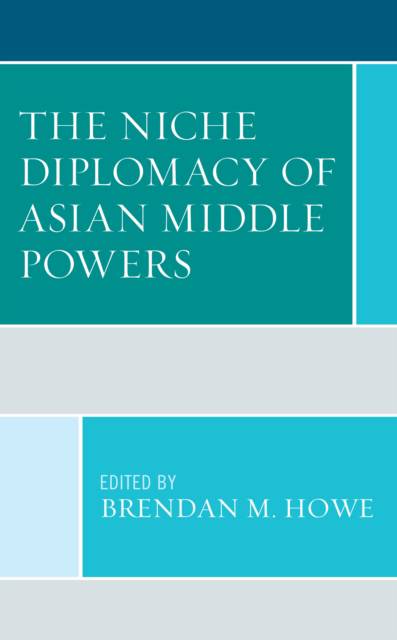
- Afhalen na 1 uur in een winkel met voorraad
- Gratis thuislevering in België vanaf € 30
- Ruim aanbod met 7 miljoen producten
- Afhalen na 1 uur in een winkel met voorraad
- Gratis thuislevering in België vanaf € 30
- Ruim aanbod met 7 miljoen producten
Zoeken
The Niche Diplomacy of Asian Middle Powers
€ 186,95
+ 373 punten
Omschrijving
The four countries represented in this volume are East Asian middle powers with strategic constraints upon their traditional security policymaking. These middle powers have pursued diplomatic activities raising their international profile or footprint, and advancing their national interest, through normative foreign policy and humanitarian channels, including peacebuilding, development, and human security. In each case, therefore, there is a happy coincidence of the national interest of the middle power expressed though certain diplomatic "niches," and benefit to regional partners in peace and development. The Niche Diplomacy of Asian Middle Powers seeks to uncover the unique contributions of Asian middle powers to the furtherance of humanitarian and human-related policymaking, including the promotion of peace, development and democracy long associated with middle-powerism, with particular emphasis on their involvement in the Southeast Asian subregion. Japan, South Korea, and Taiwan have made Southeast Asia a focus for their attempts to get more "bang for their foreign policy buck" (or Yen or Won) and have adopted similar normatively justified variations on the theme of "new Southern policies." Meanwhile, Thailand looks to play a variety of middle power roles within a region where it is a major actor.
Specificaties
Betrokkenen
- Uitgeverij:
Inhoud
- Aantal bladzijden:
- 160
- Taal:
- Engels
- Reeks:
Eigenschappen
- Productcode (EAN):
- 9781793624833
- Verschijningsdatum:
- 20/05/2021
- Uitvoering:
- Hardcover
- Formaat:
- Genaaid
- Afmetingen:
- 152 mm x 229 mm
- Gewicht:
- 408 g

Alleen bij Standaard Boekhandel
+ 373 punten op je klantenkaart van Standaard Boekhandel
Beoordelingen
We publiceren alleen reviews die voldoen aan de voorwaarden voor reviews. Bekijk onze voorwaarden voor reviews.







